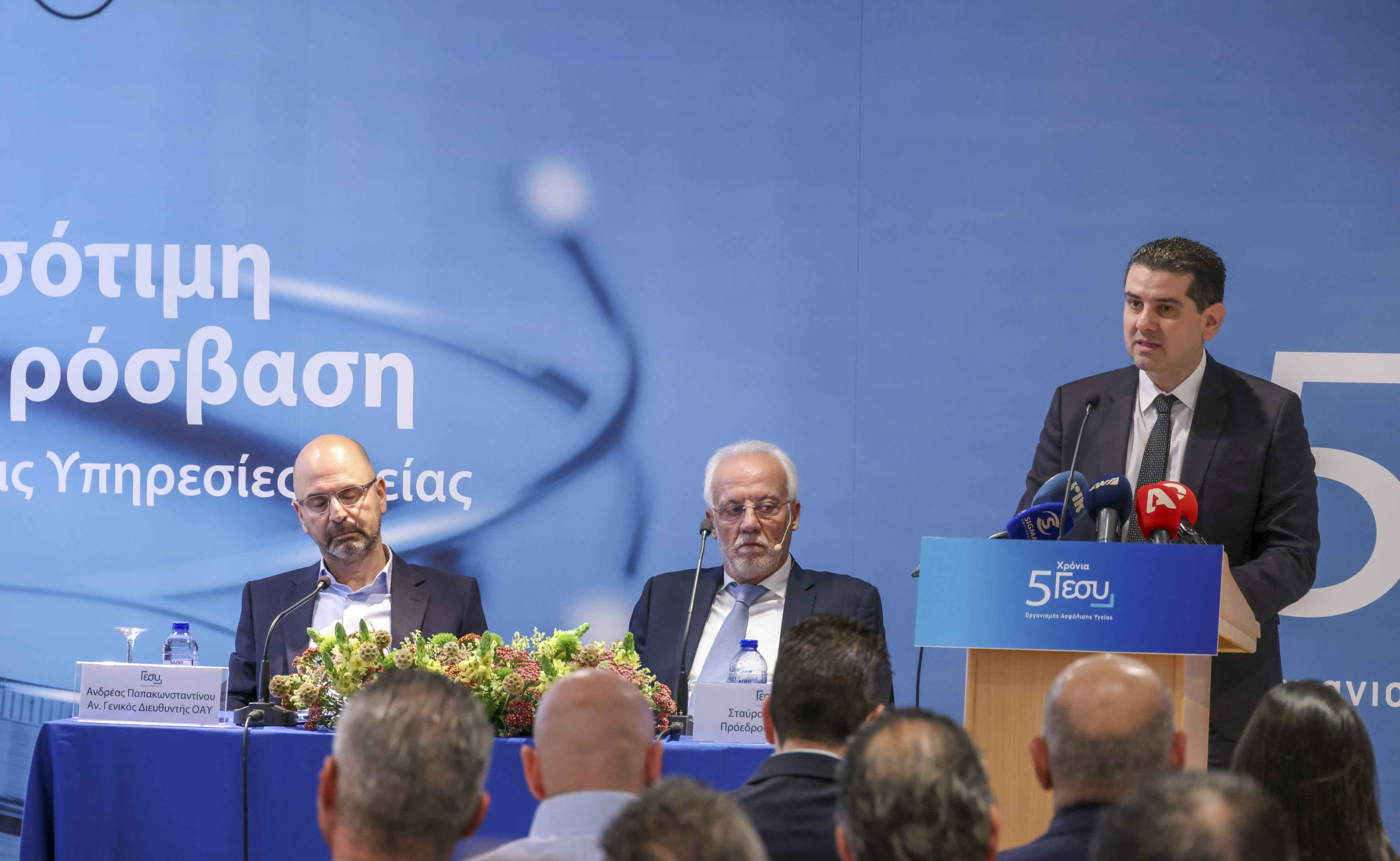Rolling out Gesy five years ago has been one of the most significant social reforms Cyprus has ever undergone, with 92 per cent of the population saying it improved their quality of life, Health Minister Michael Damianos said on Thursday.
At a press conference marking Gesy’s presence in the health sector since 2019, Damianos highlighted that between June 2023 and May 2024, just over half a million people had lab tests, and 83,166 individuals underwent procedures.
“The recent health crisis has proved that planning and organising the health system allows for excellent cooperation with health authorities,” he specified, referring to the Covid-19 pandemic.
Damianos noted that since Gesy was rolled out, reforms have been necessary, but this is part and parcel of the process.
“Unmet healthcare needs were extremely low for 2022 – below one per cent for low-income households. Reforms however, increased the ability of Gesy to respond to patients’ needs.”
Additionally, the Health Insurance Organisation (Hio) has imposed fines in 70 cases, amounting to €70,000.
It has also undertaken 600 investigations, expected to be completed by the end of 2024. HIO has purchased specialist software, re-evaluated 140,154 cases, and removed 63,995 beneficiaries from the list.
Oversight is extremely important, for which the health ministry seeks to guard patients’ rights, Damianos underlined.
Patients now have better access to affordable healthcare, which must go hand-in-hand with tougher oversight to prevent abuses, he said.
The minister added that a recent survey by IMR/University of Nicosia found that more than 92 per cent of people said Gesy had improved their quality of life. Reduced cost of access to healthcare was a significant benefit for 62 percent of respondents, while 32 percent appreciated their increased choices for medical specialists.
However, 32 per cent of respondents identified long waiting lists as Gesy’s biggest weakness, and 24 per cent noted that certain medicines and examinations are not covered by Gesy.
Currently, there are 969,722 registered beneficiaries. Between June 2023 and May 2024, 807,331 beneficiaries visited their GPs, while 637,536 visited specialists.
Additionally, 319,259 beneficiaries visited radiology/diagnostic centres, and 501,035 individuals underwent laboratory tests. There were 318,990 people who visited dentists, and 698,650 individuals who received medication.
During the same period, he said, 83,166 operations were carried out, including 17,660 GP procedures, 15,035 orthopaedic procedures, 2,693 cataract procedures, 12,318 gynaecological procedures (excluding childbirth), 7,920 deliveries, 7,381 ear, nose and throat procedures, 5,637 urological surgeries, 3,428 neurosurgeries, 2,528 ophthalmological surgeries, 1,698 cardiothoracic surgeries, 175 TAVI (transcatheter aortic valve implantation) procedures, and 235 procedures using robotic methods.






Click here to change your cookie preferences